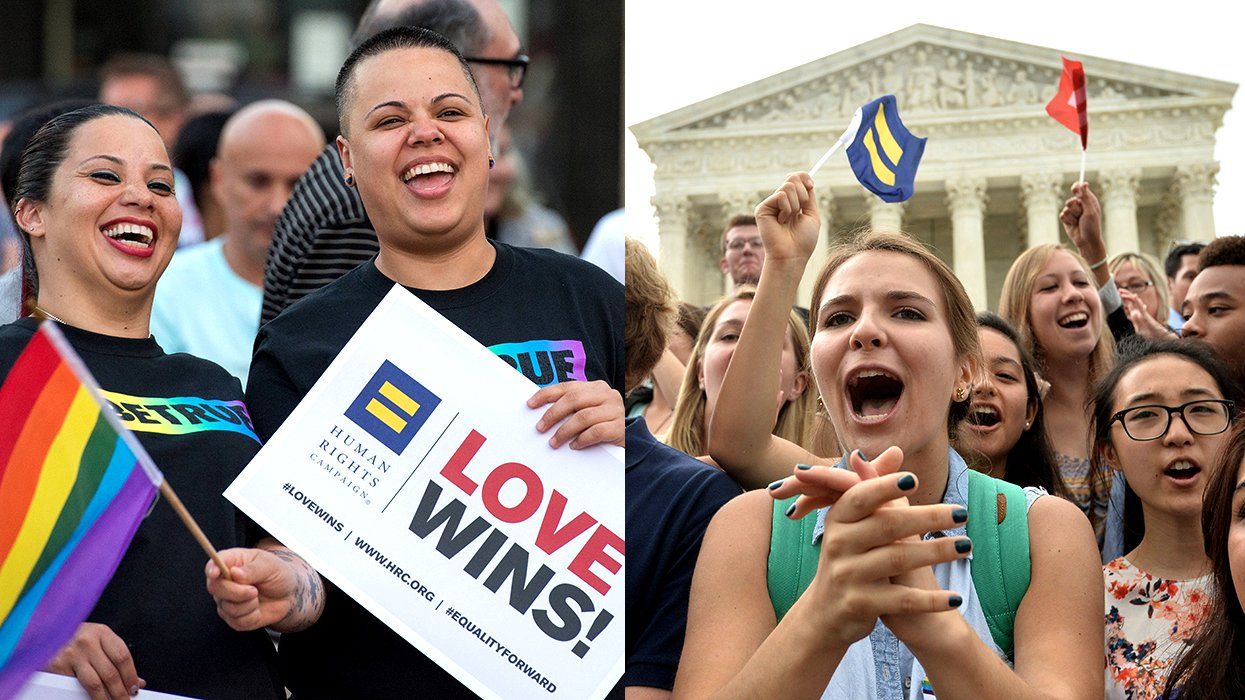U.S. lawmakers have introduced a resolution that would make June 26 a celebration of LGBTQ+ legal wins.
Democratic Sen. Tammy Baldwin and Rep. Suzan DelBene's proposal would designate the date as “Equality Day," commemorating the anniversary of three historic Supreme Court victories that advanced queer rights — Lawrence v. Texas, United States v. Windsor, and Obergefell v. Hodges.
“Today, we honor the giants who came before us in the fight for a more equal country and celebrate the progress we have made. But, we cannot mistake our progress for victory,” Baldwin said in a statement. “Still, too many LGBTQ+ Americans face violence, harassment, and discrimination simply because of who they are and who they love. I will never stop fighting for a future where everyone has the freedom to live their true, authentic self and has an equal opportunity to pursue their dreams.”
The Supreme Court ruled in the 2003 case Lawrence v. Texas that laws criminalizing sodomy and other private consensual sex acts are unconstitutional. The decision overturned bans that were still on the books in more than a dozen states.
The United States v. Windsor ruling in 2013 overturned Section 3 of the Defense of Marriage Act, which denied federal recognition of same-sex marriages even in states where marriage equality was legalized. The ruling allowed plaintiff Edith Windsor to claim the federal estate tax exemption for surviving spouses after her wife, Thea Spyer, passed away.
Obergefell v. Hodges in 2015 determined that state bans against same-sex marriage are unconstitutional, legalizing marriage equality nationally.
While the Supreme Court has made no official move to reopen the cases, nine states have recently introduced resolutions asking the court to reconsider Obergefell. None have yet passed, and even if they were to, the resolutions are nonbinding — meaning they carry no legal weight, and the court is not obligated to hear them.
However, when the conservative majority created by Donald Trump overturned Roe v. Wade, Clarence Thomas wrote in his concurring opinion at the time that the court should also revisit and overrule decisions that prevent state restrictions on contraception, marriage equality, sodomy, and other private consensual sex acts, calling the rulings "demonstrably erroneous."
If the Supreme Court reverses Obergefell, marriages between same-sex couples would still be recognized federally under the Respect for Marriage Act, which mandates that the federal government recognize same-sex and interracial marriages, and that all states recognize those performed in other states. However, the act does not require states to allow marriages between same-sex couples, allowing them to enact bans.
“In the face of active attacks and restrictive Supreme Court judgements, we must commemorate the monumental rulings that advanced LGBTQ+ equality over the past twenty-two years,” DelBene said. “By honoring our past victories, we remember why we fight for freedom and justice in the first place. There is much more work to be done. The violence and discrimination that LGBTQ+ Americans still face are why I continue fighting for the rights everyone deserves.”
















Charlie Kirk DID say stoning gay people was the 'perfect law' — and these other heinous quotes
These are some of his worst comments about LGBTQ+ people made by Charlie Kirk.